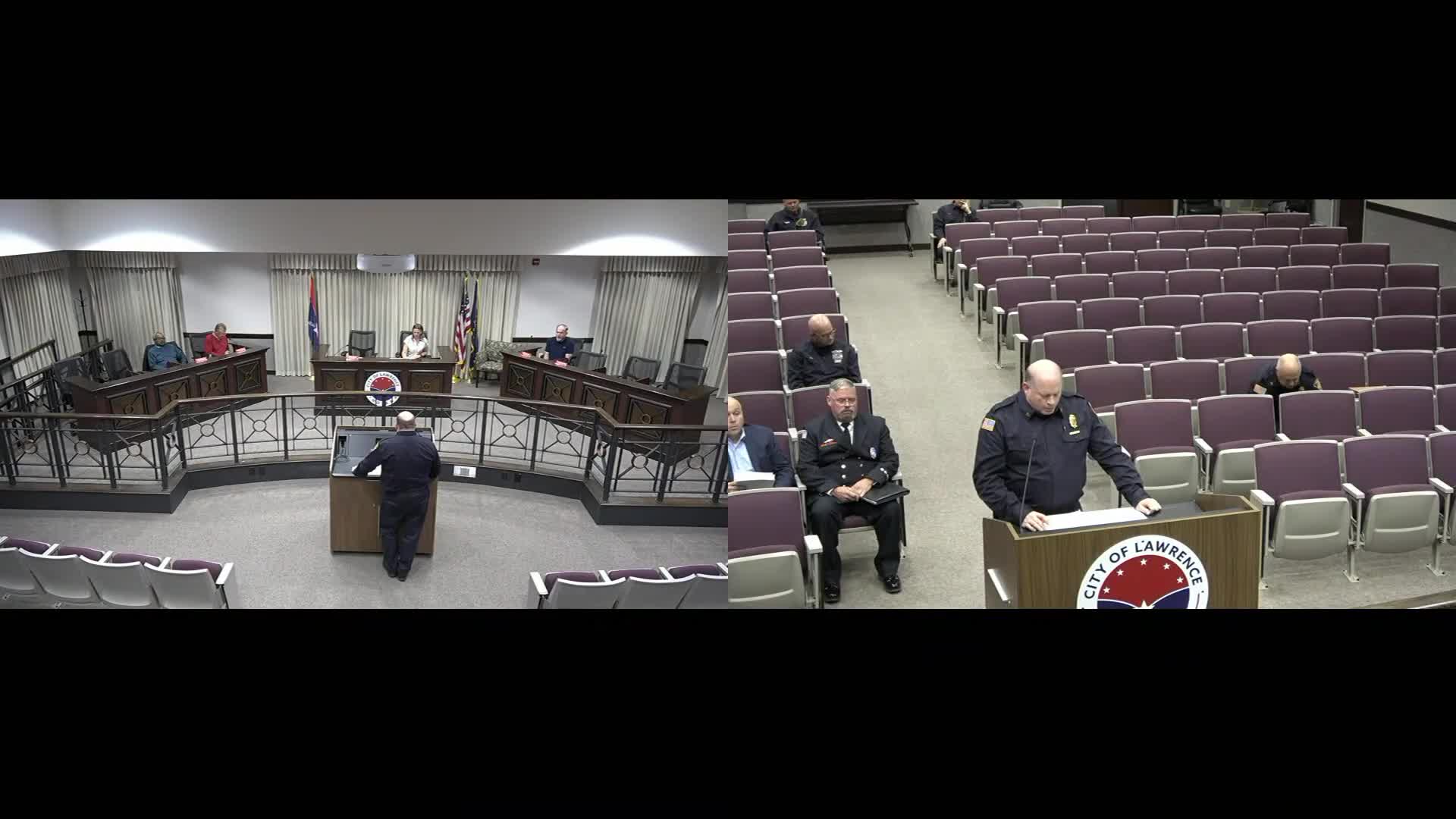Commission trims disciplinary points after Lawrence Fire EVOC collision; written reprimand remains
Get AI-powered insights, summaries, and transcripts
Subscribe
Summary
The Lawrence City governing body voted on Nov. 6 to remove two points assessed to a firefighter after an October 16 collision during an Emergency Vehicle Operations Course (EVOC), reducing the discipline from eight points to six under General Order 4.2.
The Lawrence City governing body voted on Nov. 6 to remove two points assessed to a firefighter after an October 16 collision during an Emergency Vehicle Operations Course (EVOC), reducing the discipline from eight points to six under General Order 4.2.
Deputy Chief Tony Dowd said Division Chief Eric Gamble conducted an investigation and presented photographs and witness statements to an independent Accident Review Board, which recommended eight points: four for a preventable accident, two for failure to take precautionary measures approaching alleys/driveways/intersections, and two for improper action while passing or being passed. That recommendation triggered a written reprimand and a 12-hour unpaid suspension under the department's point table; the board later excluded an additional damage-based point category because it lacked a verified damage estimate.
The union's district vice president, Nick Grama of Local 416, asked the commission to reduce the intersection and passing points so the discipline would be a verbal reprimand rather than a suspension. "My objectives up here tonight is to respectfully request a reduction in assigned points, thereby removing the 12 hour unpaid suspension and replacing it with a verbal reprimand," Grama said, citing conflicting incident reports, the training environment and alignment with Indiana law, NFPA guidance and OSHA oversight in training situations.
Grama told the commission the ambulance operator, identified in the record as "Marty," took evasive action and that photos showing the ambulance partially in the grass were consistent with an avoidance maneuver. The union also argued the EVOC layout allowed two large apparatus to occupy the same space and that the right-seat evaluator was a civilian with limited experience, not a certified instructor.
Deputy Chief Dowd and Division Chief Gamble said the EVOC course required vehicles to stop at a designated stop sign during the exercise and that the Indiana emergency-vehicle exception cited by the union applies to actual emergency operations, not to controlled training exercises. Gamble told the board the Accident Review Board reviewed the photos, statements and damage and concluded there was insufficient evidence to apply the damage-based point category that would have increased discipline further.
After discussion, the commission voted to remove the two points assigned for failure to take precautionary measures while approaching intersections. That motion carried by a 3-1 vote. A separate effort to remove the two points tied to improper passing was not adopted. With those outcomes the firefighter's total points were reduced to six, which under General Order 4.2 results in a written reprimand but does not trigger the 12-hour unpaid suspension carried by higher point totals.
The board's action modifies the Accident Review Board's original recommendation; the commission noted it had authority to uphold, modify or reverse disciplinary recommendations. The record shows the review board and the department followed the department's General Order 4.2 process, the updated order having been issued to the department in August.
